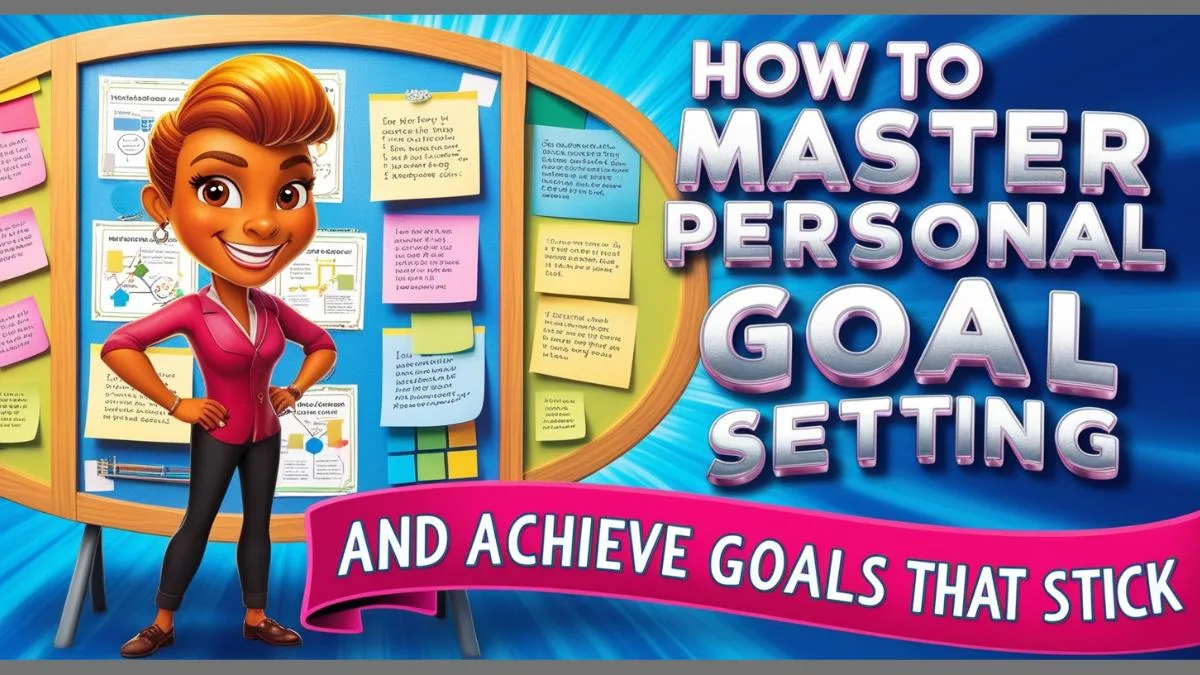
Personal goal setting is a fundamental aspect of self-improvement and personal growth. Whether you’re aiming to advance your career, improve your health, or develop a new skill, setting clear, actionable goals is the first step towards success. In this article, we’ll explore practical strategies for setting personal goals and ensuring that you achieve them effectively.
1. Define Your Goals Clearly for personal goal setting
The first step in goal setting is to define what you want to achieve. Vague goals like “get fit” or “learn something new” are hard to measure and track. Instead, use the SMART criteria to make your goals Specific, Measurable, Achievable, Relevant, and Time-bound.
- Specific: Instead of “I want to get fit,” say “I will exercise for 30 minutes, five times a week.”
- Measurable: Include quantifiable elements, like “lose 10 pounds” or “read 12 books.”
- Achievable: Ensure your goal is realistic based on your current resources and constraints.
- Relevant: Align your goal with your broader life objectives and values.
- Time-bound: Set a deadline to create urgency and motivation, such as “by December 31.”
2. Break Down Your Goals for Effective Personal Goal Setting
Large goals can seem overwhelming, which may lead to procrastination. Breaking them down into smaller, manageable tasks can make them feel more achievable. For instance, if your goal is to write a book, start by setting a target for writing a certain number of pages per week or month.
- Create Milestones: Set intermediate goals to track your progress.
- Develop an Action Plan: Outline the steps needed to reach each milestone.
3. Develop a Strategy for Success in Personal Goal Setting
Having a strategy in place increases your chances of achieving your goals. Here’s how to develop an effective strategy:
- Set Priorities: Determine which goals are most important and should be tackled first.
- Allocate Resources: Identify what resources (time, money, skills) you’ll need and how you’ll obtain them.
- Establish a Routine: Build habits that support your goal. For example, if you’re aiming to improve your fitness, integrate workouts into your daily schedule.
4. Stay Motivated
Maintaining motivation is key to sticking with your goals. Here are some tips to keep you inspired:
- Visualize Success: Picture yourself achieving your goal and the benefits it will bring.
- Celebrate Small Wins: Acknowledge and reward yourself for progress, no matter how small.
- Stay Accountable: Share your goals with friends, family, or a mentor who can offer support and encouragement.
5. Track Your Progress
Regularly reviewing your progress helps keep you on track and allows you to make necessary adjustments. Use tools like journals, apps, or spreadsheets to monitor your achievements and setbacks.
- Reflect on Your Progress: Assess what’s working and what’s not.
- Adjust Your Plan: Modify your strategies if needed to stay aligned with your goals.
6. Overcome Obstacles
Challenges and setbacks are a natural part of any journey. Being prepared to handle them can make a significant difference:
- Anticipate Challenges: Identify potential obstacles in advance and plan how to address them.
- Stay Flexible: Be willing to adapt your approach if circumstances change.
- Seek Support: Don’t hesitate to ask for help or advice when needed.
7. Learn from Your Experience
Every goal-setting experience is an opportunity for growth. After achieving a goal, take the time to evaluate what you’ve learned:
- Analyze Your Success: What strategies worked well? What could be improved?
- Apply Insights: Use these insights to enhance your approach for future goals.
Conclusion
Setting and achieving personal goals is a dynamic process that involves careful planning, consistent effort, and adaptability. By defining your goals clearly, breaking them down into manageable tasks, creating a solid strategy, staying motivated, tracking progress, overcoming obstacles, and learning from your experiences, you can set yourself up for long-term success.
Remember, the key to achieving your goals lies not just in setting them but in your commitment to seeing them through. With the right approach, you can turn your aspirations into reality and create a fulfilling path toward personal growth and achievement.